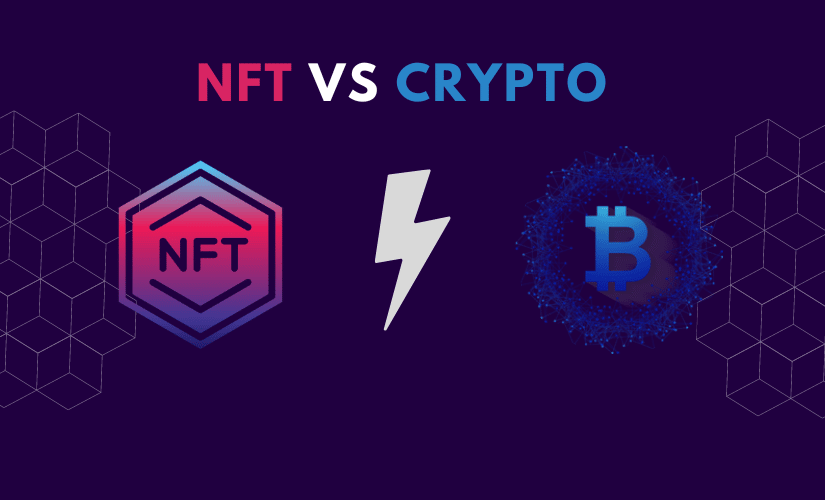Why You Should Not Invest In NFTs
Avoiding investment in NFTs and instead opting for stable international investment alternatives ensures wealth protection.
If you are looking to invest as an expat or high-net-worth individual, which is what I specialize in, you can email me (advice@adamfayed.com) or WhatsApp (+44-7393-450-837).
Introduction
You should read about why you should not invest in NFTs, instead of looking for reasons to invest in them.
In 2021, the NFT market had sales of over $17 billion, and numerous individuals made millions of dollars. NFTs are still not a wise investment for some reasons.
NFTs has recently gained media attention. People have been led to believe that NFTs are the best investment thanks to tweets, virtual properties, expensive artwork, and music on NFT selling for thousands of dollars.
What Are NFTs?
Non-fungible tokens are digital assets that can be traded and contain data that essentially states, “The owner of the computer file stored at this location is the person in control of this crypto wallet address.”
The computer file can be anything, as we’ve already mentioned, including an image, a GIF, or an audio clip.
The interesting thing about NFTs is that each copy of the image will be able to be distinguished from the other 999 copies in a special way thanks to the special kind of data (known as metadata) that each NFT token contains.
This holds true even if you make a thousand copies of the exact same picture or document and print an equal number of NFTs to signify ownership of them.
In other words, even though 1,000 investors might all have the same image in their wallets, each one of them can claim to have copy number # in particular.
Imagine it as a limited edition of 1,000 trading cards, each of which has a unique serial number that allows you to identify it from other cards in the edition. In addition, the card bearing serial number #1 would almost certainly fetch a higher price and be more sought-after than other examples of the edition.
The designers of these kinds of NFT collections take this idea a step further by incorporating unique characteristics that are scarce in varying degrees in order to raise the value and rarity of their pieces.
For instance, a creator may decide that out of the 1,000 pieces, 10 will have a background that is a different color and only one will have a pattern.
By doing this, it makes sense that some buyers who are interested in investing in the collection will want to own its rarest items in the expectation that, assuming continued high demand for the collection, their value will increase over time.
Let’s now discuss the aspect of fungibility, which is what gives non-fungible tokens their name. Tokens that can be exchanged for one another like-for-like are referred to as fungible tokens.
For instance, neither Bob nor Alice would benefit more or less if their one bitcoin were swapped for one another. This is more complicated when dealing with NFTs.
Although NFTs can be exchanged (i.e., bought and sold to/from others), each NFT has a specific value due to its distinctive characteristics.
For instance, it would not be possible to exchange like-for-like a “Shoeless” Joe Jackson, 1909 American Caramel baseball card for a shiny Charizard Pokemon card. When discussing NFTs, “non-fungible” refers to something like this.

What Are The Main Characteristics Of NFTs?
NFTs also have the following important features:
Indestructible
Each NFT token is indestructible due to the fact that all of its data is stored on the blockchain using smart contracts. Since ownership of these tokens cannot be changed, it is gamers and collectors who actually hold the NFTs, not the companies that produce them.
Contrast this with purchasing items from the iTunes store, where customers only pay for the right to listen to music and don’t actually own the items they buy.
Verifiable
The ability to track back to the original creator of items like digital artwork is another advantage of storing historical ownership data on the blockchain. This enables authentication of the work without the aid of a third party.
How Do NFTs Work?
A transparent, immutable ledger that continuously records all NFTs, who owns them, and where the files they point to are stored is required in order to be able to prove ownership of digital objects.
Blockchain technology can help in this situation. All NFTs can be stored in a transparent manner, enabling anyone to check the veracity of any NFT at any time, by utilizing the publicly distributed, immutable nature of blockchains.
Every time an NFT is transferred or created, the action is timestamped and is permanently recorded on the blockchain, making it possible to trace any individual NFT all the way back to its inception. This is useful if you want to verify whether your cartoon ape or virtual cat is real or not.
Let’s talk about NFTs from a technical perspective.
While it is possible to create cryptocurrency assets from scratch, most developers prefer to use pre-existing designs in order to save time and money when launching new tokens.
Leading crypto projects like Ethereum understood early on that for interoperability to be established, there needed to be some kind of standardization among newly created crypto tokens.
To do just that, Ethereum token standards were created. To be compatible with all other tokens, platforms, and services in the larger Ethereum ecosystem, a token must be able to perform a specific set of smart contract functions.
The primary blueprints Ethereum created for its non-fungible tokens, ERC-721 and ERC-1155, are used by developers to build and deploy their own tokens on top of its blockchain.
To encourage developers to create and host NFTs on their blockchain networks, other well-known blockchains like Eos, Neo, and Tron are examples.
Finally, it’s crucial to remember that NFTs differ from other kinds of cryptocurrencies in more ways than just their lack of fungibility. NFT support infrastructure is also different.
NFTs cannot be listed, purchased, or sold on centralized or decentralized exchanges, unlike all other cryptocurrencies.
To list and trade these assets, users must instead use specially designed NFT marketplaces. Depending on which NFT collection you’re interested in, there are a ton of other options besides the two most well-known ones, OpenSea and Rarible.
Why Do NFTs Have Value?
The main market forces influencing price are supply and demand, as they are for all assets. People are frequently willing to pay a high price for NFTs because of their scarcity and the high demand from investors, collectors, and gamers.
Some NFTs may also be very profitable for their owners. For instance, one player on the Decentraland virtual land platform made the decision to buy 64 lots and combine them into a single estate.
It was marketed as “The Secrets of Satoshi’s Tea Garden” and sold for $80,000 just because of its prime location and easy access to the road.
To acquire a portion of the virtual Monaco racing track in the video game F1 Delta Time, another investor paid $222,000 in cash. The owner is entitled to 5% dividends from all races held on the digital track under the NFT that represents it, including entry fees.
What Distinguishes NFTs From Cryptocurrencies?
Cryptocurrency is what you use for all blockchain transactions, just like the money in your bank account. Through cryptocurrency exchanges, one can buy cryptocurrency or turn it into fiat money (such as dollars, euros, yen, etc.).
An NFT, on the other hand, is a one-of-a-kind, irreplaceable asset that is bought with cryptocurrency. Like a well-known trading card or a one-of-a-kind work of art, it can increase in value or decrease in value regardless of the currency used to purchase it.
NFTs are non-fungible in this regard, whereas cryptocurrencies are.
It makes sense to consider conventional fiat currencies in order to better understand this. You wouldn’t pull out a dollar bill from your wallet and ask us, “Which dollar bill do you want? ” if we asked you to lend us a dollar.
It would be absurd to do so because every $1 bill is equivalent to another $1 bill and can be used in exchange for other $1 bills. The reason for this is that the dollar is fungible.
The same goes for cryptocurrencies. They are easily replaceable and tradeable because they are not special.
The non-fungibility of NFTs, on the other hand, refers to the fact that no two are alike. Since there is no such thing as an identical version, each NFT is a distinct piece of information that cannot be replaced.
Uniqueness and scarcity are factors that make NFTs more desirable and appealing. Because NFTs are so uncommon, people can sell them for higher prices, as is the case with all rare goods.

10 Reasons Why You Should Not Invest In NFTs
Every NFT contains distinctive information that distinguishes it from other NFTs and makes it verifiable. Since each item can be easily tracked, it makes the production and distribution of counterfeit collectibles impossible.
Non-fungible tokens (NFTs) are distinct and contain a unique identifying code, making them non-replaceable and only existing for the owner at a given time. It can only be stored in a cryptocurrency wallet because it is a digital asset.
They were developed to provide you with something that cannot be copied and are a component of the Ethereum blockchain.
NFTs have generated millions of dollars in profits for investors, and many more plan to invest in these collectibles.
Since 2017, non-fungible token purchases have totaled about $174 million. It is suggested that tech-savvy investors avoid this new asset of the digital age, the NFT, as it is not a wise investment.
Here are some explanations of why you shouldn’t invest in NFTs if you’re wondering why this type of digital asset is not a good choice.
1. NFTs May Succumb To Value Loss
One of the reasons why you should not invest in NFTs is that they may one day lose their value.
Due to their scarcity, NFTs are valuable. Demand, which will center on a select few, is what drives value; scarcity does not drive value on its own.
The trendy books like Everydays: The First 5000 Days, which Beeple sold in March 2021 for a record $69 million, are among the chosen few. However, not every NFT is the same.
The amount that consumers are willing to pay for NFTs ultimately determines their true value. The NFT is regarded as valuable and its value (price) may increase as long as the trend continues.
But the moment people stop being interested in it, its value drops. The majority of NFTs, in actuality, are either worthless or lose value over time.
2. The NFT Market Is Volatile And Unpredictable
Okay, that’s one of the main arguments against investing in NFTs. Nobody can guarantee the stability of the financial market because it is a developing one.
It has a greater chance of developing and establishing its value because it is still in its infancy.
However, given that we lack sufficient information to assess their performance, it remains risky. One of the main factors making NFT investments too risky is ignorance.
Investors who are interested in trying out NFTs are advised to start with small investments. You can put money into something that you are more familiar with and has a proven track record of success.
Before making an investment in this developing market, many experts advise investors to keep in mind the volatility and illiquidity. There is no established method for assisting in asset valuation.
The owner of an NFT has the right to keep the copyright and make additional copies of the asset even after it has sold out. As non-fungible tokens, the owner may sell counterfeit copies. It effectively illustrates that these digital assets have no intrinsic value.
3. NFTs May Totally Vanish
NFTs are non-exchangeable data storage units that are linked to tradable digital assets, such as domain names, images, videos, and audio files. This is the reason why you should not invest in NFTs.
As we witnessed in September 2021, a bug on the OpenSea marketplace caused over 42 NFTs worth $100,000 to vanish. An unintentional transfer to a burn address caused the owners to lose ownership of their NFTs.
In a different instance, over $1.7 million in NFTs were stolen in February 2022 as a result of what appeared to be a phishing attack against OpenSea users. The Wyvern Protocol, which underpins OpenSea’s smart contract system, appears to have been the weak link in the attack.
4. NFT Has No Permanent Storage Facility
One of the main security issues with investing in NFTs is storage, which why you should not invest in NFTs.
NFTs cannot be permanently stored, making them an unreliable option for investors. Remember that there is no blockchain wallet available for storing your NFTs.
They can only be kept on a server. And if you can’t safeguard your asset, it might get lost, damaged, or destroyed. It implies that your NFT’s optimized image, video, piece of art, and music will eventually vanish.
Because there are so many chances for corruption or deletion, investing millions of dollars in NFTs is simply not a wise investment decision.
As a buyer, you have the right to choose the location of your digital asset’s storage and to ensure that the organization hosting your NFT takes proper care of it.
5. NFTs Have No Real Value
Even though the cryptocurrency market is expanding and bitcoin’s value has increased by up to 18%, it is still impossible to say that NFTs are a wise long-term investment. That is why you should not invest in NFTs.
Right now, NFT’s value is determined by resale and the price buyers are willing to pay. Your non-fungible token will lose value if users lose interest in it and are unwilling to pay for it. It demonstrates unequivocally that NFTs are worthless.
6. NFTs Are Not Rare
Unaware investors who purchase NFTs believe they have ownership of the artwork or tangible item (such as a piece of music, a piece of video, or an in-game item).
NFTs are actually just digital records on the blockchain that show who owns the goods. As a result, collectors get a special blockchain address that serves as proof of their purchase.
The author can still legally mint additional copies and sell them to other collectors while keeping the copyright. Anyone can purchase a print of the Mona Lisa if they want to collect physical works of art. But the original can only be owned by one person.
Additionally, there are numerous instances where authors themselves accuse other writers of plagiarizing their work. The NFT community is plagued by con artists who sell stolen works for more money.
7. NFTs Are Subject To Capital Gains Tax
Investors who are considering trading NFTs for profit should be aware that capital gains tax applies to NFTs. Capital gains tax will apply to any profit you make from investing in NFTs that you later sell or trade.
There are some typical NFT activities that are taxed. The capital gains tax, for instance, applies when buying or selling NFTs in exchange for fungible cryptocurrencies, trading NFTs for other NFTs, or exchanging one NFT for another.
To avoid receiving a shock tax bill when filing tax returns, it is a great idea to carefully weigh all the tax repercussions before making an investment decision.
8. Fraud Risk In NFT Is High
Digital artists are now able to assert ownership of their creations, which is one of the main advantages of using a non-fungible token. That is why you should not invest in NFTs.
Artists have complained that their work has been tokenized without their consent in numerous reported fraud cases.
The use of NFTs by scammers to generate income has begun. By creating phony websites, inflating the price of NFTs, and selling them to customers for more than their actual worth, they are stealing the original work of artists.
If investing in NFTs is still something you want to do, carefully examine the NFT exchange to make sure it has the necessary security credentials and verifies artists.
NFT exchanges provide an authentication and verifiability signature for the NFT. The ownership of the NFTs cannot be verified using a standardized procedure, which is unfortunate.
9. NFTs Have a Significant Environmental Impact and Consume A Lot Of Energy
Cryptocurrencies and non-fungible tokens have a significant environmental impact, making them unsustainable. This is one of the grave reasons why you should not invest in NFTs, especially if you believe in green economy.
For instance, NFTs use a lot of energy when mining cryptocurrencies. For the production of NFT, an estimated 8.7 megawatt-hours of energy were needed (the creation of a certificate of authentication in order to sell an NFT).
This energy is comparable to how much electricity a typical American household uses each month.
The blockchain needs a lot of processing power to support NFT transactions, especially those that use a PoW consensus.
An analysis shows that to mint a single NFT on the Ethereum blockchain, 35 kWh of energy are needed. In a different instance, estimates reveal that a specific artist used more than 175 MWh of energy (103,129 KgCO2 emissions) to create an edition of just two works of art for the Nifty Gateway marketplace.
Crypto enthusiasts assert that NFTs’ effects can be mitigated. But a single NFT takes a long time to complete. A tree will need about 12 years to make up for the minting of one NFT.
A single NFT-related transaction may produce excessive greenhouse gas emissions that will eventually harm the environment and hasten global warming. A NFT is detrimental to the environment, to put it another way.
According to numerous studies, there are 37 million tonnes of CO2 emitted annually from bitcoin mining. Many cryptocurrencies are based on proof-of-work algorithms, which were developed to increase the blockchain’s security.
This cryptocurrency security system can monitor system activity and maintain a log of all transactions. This is the primary driver behind high energy consumption.

10. Chance Of Theft Of NFT Is High
Contrary to popular belief, NFT theft is very likely. Such security issue is a reason why you should not invest in NFTs.
Your NFT is easily theft-proof if your password is weak and your NFT exchange does not make use of two-factor authentication.
In order to prevent hackers from accessing your high-value NFT, it is recommended that you store it offline and in a safe place.
Final Thoughts
There is no denying that this particular type of blockchain technology offers investors a number of benefits over other traditional stocks. Starting a business in the NFT sector and earning money online appeals to a lot of businesspeople.
For instance, you could start a white label platform, become a broker, or develop an online course. One of the best app ideas for buying, selling, and minting NFTs is launching an NFT app.
It is strongly advised to wait for potential future opportunities rather than looking for justifications to invest in NFTs. Do your homework before choosing an investment if you’re thinking about investing in NFTs.
NFTs are a new class of digital asset that lacks liquidity, making it difficult for token holders who want to sell their holdings. As a result, investing in NFTs can be risky.
Therefore, it is advised to conduct a thorough investigation into the operation of blockchain technology and all of the available options for dealing with these digital assets.
Pained by financial indecision? Want to invest with Adam?

Adam is an internationally recognised author on financial matters with over 830million answer views on Quora, a widely sold book on Amazon, and a contributor on Forbes.



